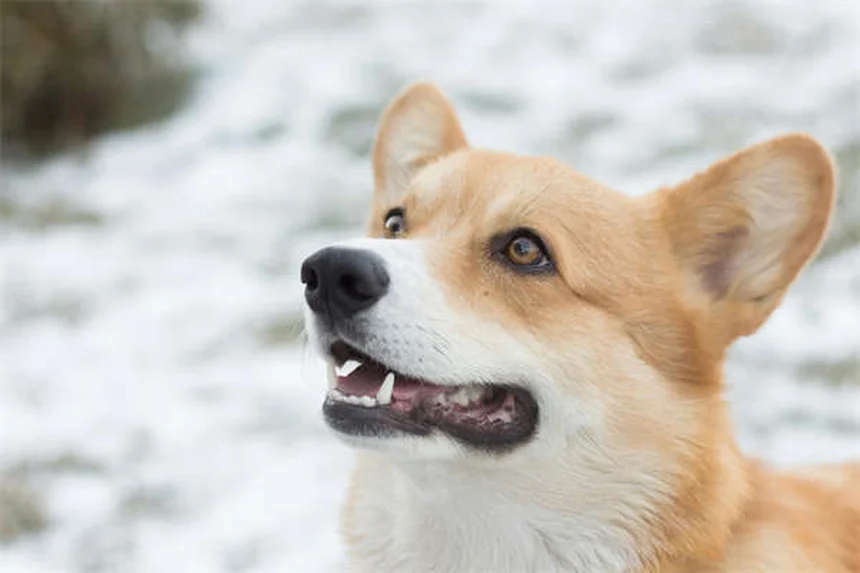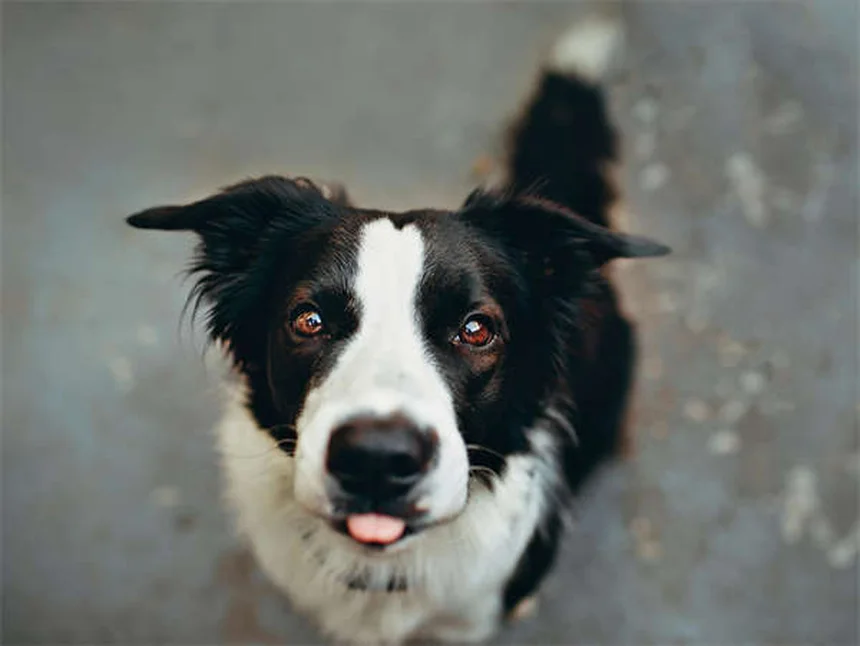Why Is My Dog Shaking? 10 Common Causes Explained
Why is my dog shaking? The answer is: Dogs shake for many different reasons, from harmless excitement to serious medical conditions. As a dog owner myself, I've learned that shaking can be your pup's way of telling you something important - whether it's I'm cold! or I need help!You'll be relieved to know that most dog shaking is completely normal, like when they shake off water after a bath or wiggle with joy seeing you come home. But sometimes, those tremors can signal something more concerning. The key is paying attention to when it happens and looking for other symptoms.In this guide, we'll walk through the 10 most common reasons dogs shake, from the no-big-deal to the vet-visit-now situations. I'll share personal stories from my years of dog ownership and professional advice from veterinarians to help you understand what your furry friend is trying to communicate!
E.g. :6 Proven Ways to Make Your Senior Dog Feel Young Again
- 1、Understanding Why Dogs Shake
- 2、Top 10 Reasons Dogs Shake (And When to Worry)
- 3、Medical Reasons for Shaking
- 4、Funny Reasons Dogs Shake
- 5、When to Call the Vet
- 6、Final Thoughts on Dog Shaking
- 7、Beyond the Basics: More About Canine Shaking
- 8、Environmental Triggers You Might Miss
- 9、Training Techniques for Nervous Shakers
- 10、Grooming-Related Shaking You Should Know
- 11、When Shaking Becomes a Habit
- 12、Seasonal Shaking Patterns
- 13、FAQs
Understanding Why Dogs Shake
Is Your Dog Trying to Tell You Something?
Ever noticed your pup suddenly trembling like a leaf in the wind? Dogs shake for all sorts of reasons - some totally normal, others needing vet attention. Let's break it down so you can understand what Fido's trying to communicate!
Shaking can range from tiny muscle twitches to full-body tremors. The key is observing when it happens and looking for other clues in your dog's behavior. I always tell my friends - your dog's body language speaks volumes if you know how to listen!
Top 10 Reasons Dogs Shake (And When to Worry)
1. Fear and Anxiety - The Nervous Shakes
Picture this: thunder booms outside and suddenly your brave German Shepherd is trembling like a Chihuahua. Why? Fear triggers adrenaline, preparing dogs for fight or flight. The shaking helps burn off that nervous energy.
My neighbor's Lab does this during fireworks. We've learned to create a safe den space with blankets and white noise. The shaking usually stops once the scary noise passes. But if it continues for hours? That's when we call the vet.
 Photos provided by pixabay
Photos provided by pixabay
2. Cold Weather - The Chilly Dog Shiver
Did you know small dogs lose body heat faster than big dogs? Check out this comparison:
| Dog Size | Shivering Temperature |
|---|---|
| Chihuahua | Below 50°F |
| Golden Retriever | Below 30°F |
My cousin's Dachshund turns into a shaking machine when it dips below 60°F! We solved this with a cozy sweater and heated dog bed. Remember - if warming them up doesn't stop the shakes, something else might be going on.
3. Pure Excitement - The Happy Dance
Who hasn't seen that full-body wiggle when you grab the leash? This is the good kind of shaking! Dogs literally tremble with joy when:
- You come home
- Treat time arrives
- They spot their favorite playmate
My own dog does this hilarious butt-wiggling shake when I get the tennis ball out. It's like his version of happy dancing!
Medical Reasons for Shaking
4. Itchy Problems - The Head Shaker
Ever seen a dog violently shaking their head? That's usually an ear issue talking. Common causes include:
- Ear infections (the #1 culprit)
- Allergies making skin itchy
- Those pesky fleas having a party
Here's a pro tip: If your dog's doing the head shake more than usual, peek in those ears. Redness or funky smell? Time for the vet!
 Photos provided by pixabay
Photos provided by pixabay
2. Cold Weather - The Chilly Dog Shiver
Did you know dogs often shake when they're in pain? It might be subtle at first. Watch for these signs:
- Shaking combined with whimpering
- Reluctance to move or jump
- Changes in appetite
My aunt's senior dog started shaking whenever he tried to stand up. Turns out it was arthritis. With proper meds and a comfy orthopedic bed, his shaking improved dramatically.
6. Serious Health Conditions
Now let's talk about when shaking means vet visit ASAP. Certain conditions cause concerning tremors:
- Seizures (look for loss of consciousness)
- Poisoning (from chocolate, xylitol, etc.)
- Neurological disorders
Remember that time my friend's dog got into some grapes? The shaking started within hours. Thank goodness they rushed to the emergency vet!
Funny Reasons Dogs Shake
7. The Post-Bath Shake Off
Why do dogs shake after baths? To dry off, of course! It's nature's blow dryer. My Labrador can spray water six feet with one good shake!
Pro tip: Do bath time in an enclosed space unless you want your bathroom walls decorated with water spots!
 Photos provided by pixabay
Photos provided by pixabay
2. Cold Weather - The Chilly Dog Shiver
Ever watched your sleeping pup's legs twitch? That's usually just REM sleep activity. My Beagle does this hilarious silent bark while dreaming of chasing rabbits!
But here's a question: When should sleep shaking worry you? If it's violent or your dog seems disoriented afterward, that's vet-worthy. Otherwise, enjoy the free entertainment!
When to Call the Vet
9. Red Flag Symptoms
Some shaking needs professional attention. Call your vet if you notice:
- Shaking that lasts more than an hour
- Loss of coordination
- Pale gums
- Vomiting with shaking
I always say: When in doubt, check it out. Better safe than sorry with our furry friends!
10. Senior Dog Considerations
Older pups often develop harmless "old age tremors." But how can you tell the difference between normal aging and something serious? Look for:
- Changes in appetite or thirst
- Confusion or getting "stuck" in corners
- Difficulty standing up
My 14-year-old terrier has developed a slight head tremor, but since he's otherwise his happy self, our vet isn't concerned. Regular checkups help monitor these changes!
Final Thoughts on Dog Shaking
Becoming a Shake Detective
The key is observing patterns. Does the shaking happen:
- Only during storms? Probably anxiety
- After playing hard? Normal cool-down
- Randomly throughout the day? Vet time
I keep a little shaking journal for my dogs - noting when it happens and what else was going on. This helps the vet pinpoint causes!
Creating a Comfort Zone
For stress-related shaking, try these calming techniques:
- Thundershirts (like a cozy hug)
- Calming pheromone diffusers
- Designated safe spaces
My anxious foster dog went from constant shaking to relaxed naps with these tools. Sometimes simple changes make a world of difference!
Beyond the Basics: More About Canine Shaking
The Breed Factor in Dog Shaking
Did you know some breeds shake more than others? Small dogs like Chihuahuas and Toy Poodles tend to be shakier by nature. But why is that? Their tiny bodies lose heat faster, and their nervous systems seem wired differently. I've noticed my friend's Chihuahua shakes when excited, cold, or just because it's Tuesday!
On the flip side, larger breeds like Great Danes rarely shake unless something's wrong. This makes their tremors more noticeable and concerning. Breed tendencies matter when interpreting your dog's shakes - what's normal for a Yorkie might signal trouble for a Mastiff.
The Emotional Connection
Dogs don't just shake physically - they shake emotionally too! Ever seen a dog shake after a tense encounter at the dog park? That's called displacement behavior, where they release built-up stress. It's like when you shake out your hands before a big presentation.
My rescue pup used to do full-body shakes after meeting new people. With patience and positive reinforcement, we've worked through most of it. Now he just gives a little tail wag and moves on. Progress!
Environmental Triggers You Might Miss
Chemical Sensitivity Shakes
Here's something most owners don't consider - household chemicals can cause shaking! Common culprits include:
- Floor cleaners (especially pine-scented ones)
- Flea treatment products
- Air fresheners and scented candles
When my neighbor's terrier started shaking uncontrollably, they traced it back to a new carpet deodorizer. Switching to pet-safe products solved the problem. Always check labels before using chemicals around pets!
Food-Related Tremors
What goes in your dog's bowl affects their whole body. Some dogs shake due to:
| Food Issue | Shaking Type |
|---|---|
| Food allergies | Whole-body itching and shaking |
| Low blood sugar | Weak, wobbly tremors |
| Caffeine ingestion | Hyper, jittery shaking |
Remember that time you had too much coffee? Dogs experience similar jitters from caffeine or chocolate. Keep those mocha lattes out of reach!
Training Techniques for Nervous Shakers
Counterconditioning Anxious Dogs
Can you train a dog to shake less? Absolutely! The key is changing their emotional response to triggers. For thunder-phobic dogs, we play happy sounds at low volumes while giving treats. Gradually increase volume as they stay calm.
My cousin's anxious Beagle went from shaking at every car backfire to barely noticing them. It took months of consistent training, but the results were worth it. Patience and chicken treats work wonders!
The Power of Distraction
Sometimes the best solution is redirecting their focus. When my dog starts shaking at the vet's office, we play "find the treat" games. Sniffing activates the calming part of their brain, often stopping shakes in their tracks.
Try these distraction techniques:
- Food puzzle toys
- Training commands they know well
- Gentle massage (if they enjoy it)
You'd be amazed how quickly "sit-stay-treat" can replace nervous tremors!
Grooming-Related Shaking You Should Know
Clipper Stress in Grooming Sessions
Ever taken your dog to the groomer and noticed extra shaking afterward? The vibration of clippers can leave some dogs feeling "electric" for hours. My Poodle mix used to tremble until bedtime after haircuts.
We solved this by:
- Choosing scissor cuts over clippers when possible
- Scheduling morning appointments so he could relax all day
- Bringing his favorite blanket to the groomer
Now he struts out of there like he owns the place! Well, maybe with just a little shake to fluff his fur.
The Dreaded Nail Trim Tremors
Why do so many dogs shake during nail trims? For many, it's pure anticipation of discomfort. Even if you've never quicked them, they remember that one time at the vet...
Here's what worked for my nail-phobic pup:
- Using a scratchboard for front nails
- Giving high-value treats only during trims
- Doing just one paw per session
Slow and steady wins the race! Now he only gives a little paw tremble instead of full-body shakes.
When Shaking Becomes a Habit
Attention-Seeking Shakes
Can dogs learn to shake for attention? You bet! My sister's Pomeranian discovered that trembling made everyone rush to comfort him. Soon he was "shaking" whenever he wanted treats or lap time.
We had to learn to ignore the fake shakes while rewarding calm behavior. Tough love works! Now he only shakes when genuinely cold or excited.
Compulsive Shaking Disorders
In rare cases, shaking becomes compulsive. These dogs shake:
- At the same time daily
- In rhythmic patterns
- Without obvious triggers
My vet friend treated a Bulldog who shook his head exactly 37 times every morning. Medication and behavior modification helped break the cycle. If you notice robotic-like shaking patterns, consult a veterinary behaviorist.
Seasonal Shaking Patterns
Allergy Season Shakes
Spring brings more than flowers - it brings allergy shakes! Pollen makes dogs itchy, leading to constant shaking and scratching. My Lab gets "the spring shakes" until we start his allergy meds.
Watch for:
- Paw licking with shaking
- Face rubbing on carpets
- Recurrent ear infections
A simple antihistamine might be all your pup needs to stop the seasonal shakes!
Holiday Stress Tremors
Think holidays stress you out? Imagine being a dog! Between strangers visiting, schedule changes, and strange decorations, many dogs develop holiday shakes.
We created a "safe zone" during parties where our dogs can retreat. Complete with:
- White noise machine
- Familiar bedding
- Interactive toys
Now they choose when to socialize and when to chill - no more forced interactions causing stress shakes!
E.g. :Here's Why Dogs Shake Their Fur | PetCareRx
FAQs
Q: Why is my dog shaking when it's not cold?
A: If your dog is shaking when temperatures are normal, there could be several explanations. Excitement is a common cause - my own dog does full-body wiggles when he sees his leash! Anxiety is another possibility, especially during thunderstorms or fireworks. Some dogs even shake as part of their dreaming process during sleep. However, if the shaking persists for more than an hour or is accompanied by other symptoms like vomiting, it's time to call your vet. I always recommend keeping a "shake log" to track patterns that might help identify the cause.
Q: Should I worry if my senior dog starts shaking?
A: Some shaking in older dogs is normal - we call them "senior tremors." My 12-year-old terrier developed mild head shakes that our vet said were harmless. But watch for red flags: changes in appetite, confusion, or difficulty standing could indicate neurological issues or pain from arthritis. Senior dogs should have regular checkups anyway, so mention any new shaking at their next appointment. My aunt's aging Labrador had shaking that turned out to be easily managed arthritis pain - with proper medication, he was back to his happy, shake-free self!
Q: Why does my dog shake after baths?
A: This is completely normal dog behavior! Think of it as nature's blow dryer. Dogs can shake off 70% of the water from their coat in just 4 seconds - way more efficient than towel drying! My Labrador can spray water across the entire bathroom with one good shake. While funny to watch, I've learned to do bath time in the shower stall unless I want water spots everywhere. The only time to worry about post-bath shaking is if it continues long after they're dry or seems excessive - that might indicate stress or skin irritation.
Q: What does it mean when a dog shakes its head constantly?
A: Frequent head shaking usually points to ear problems. As a longtime dog owner, I've learned that ear infections are the #1 culprit - they're itchy and uncomfortable! Other causes include allergies or foreign objects in the ear. Here's my pro tip: lift those floppy ears (if your dog has them) and check for redness, discharge, or bad odor. My friend's Cocker Spaniel kept shaking his head until they discovered a foxtail buried deep in his ear canal. If head shaking persists more than a day or you notice swelling, it's vet time for sure.
Q: Can certain foods make my dog shake?
A: Absolutely! Some human foods are toxic to dogs and can cause shaking as an early symptom. The most dangerous include chocolate, xylitol (found in sugar-free gum), grapes, and macadamia nuts. I'll never forget when my neighbor's puppy got into some chocolate - the shaking started within hours and they had to rush to emergency vet care. Other food-related shaking causes could be allergic reactions or even low blood sugar in small breeds. When in doubt about something your dog ate, call your vet or the Pet Poison Helpline immediately - it's always better to be safe than sorry!







